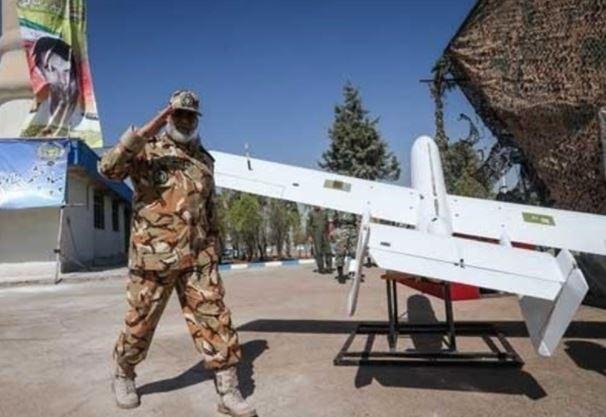Terrorist use of drones, such as the Iran-made Yasir drone depicted, and humanitarian issues leading to radicalization, are the foremost threats in the Middle East, CENTOCOM commander Gen. Kenneth McKenzie said. Photo courtesy of Tasnim News Agency
April 30 (UPI) -- Proliferation of unmanned aerial vehicles and humanitarian issues are the two most urgent threats in the Middle East, Marine Corps Gen. Kenneth McKenzie said.
McKenzie, commander of U.S. Central Command, spoke to a virtual gathering sponsored by the American Enterprise Institute, said on Friday that the regional problems must be solved by a united coalition of NATO and partner allies -- because the U.S. military can't do it alone.
He cited the increased use of inexpensive UAVs by terrorist and other enemy organizations in the Middle East, as well as poor governance, which could lead to humanitarian crises fostering radicalization of young people.
McKenzie also noted Chinese and Russian involvement in the area, saying it is no surprise they're accelerating efforts to establish bases and expand ties in the region.
"Russia is in the region because it perceives opportunities, while gaining warm-water ports that allow it to contest freedom of navigation in the Middle East," McKenzie said.
"China is playing a longer game that involves economic deals that are very enticing and appealing, but carry substantial costs down the road. Ultimately, China hopes to supplant the United States as the partner of choice in the region," he said.
A February 2021 paper from Johns Hopkins University noted that terrorist groups have already begun to use aerial drones to conduct and coordinate attacks, citing the Islamic State's military operations in Mosul, Iraq.
"The rapid improvements in drone technology and its increasing capabilities will provide terrorist groups with multiple new avenues to sow fear," the report said in part.
"The ability of a small group or individual to conduct multiple simultaneous attacks, at a relatively low cost and with significant standoff distance, will lead to the use of drones as a primary tactic of future terrorist attacks. The advantage is with the attacker," it said.
McKenzie added that the Defense Department supports diplomatic efforts to ensure that Afghanistan's Taliban will sever its relationship with Al-Qaida to prevent the country from becoming a haven for terrorists when U.S. troops depart.
There is fear that democratic reforms in Afghanistan will be reversed after the scheduled departure in September.
The department is also drawing up contingency plans to conduct over-the-horizon counterterrorism operations in Afghanistan should it become necessary, McKenzie said.















